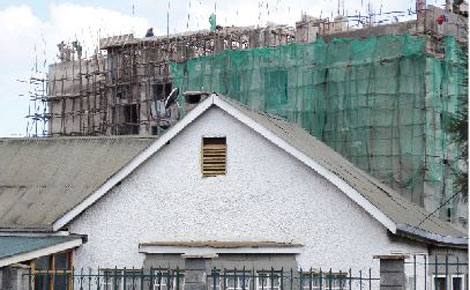×
The Standard e-Paper
Kenya’s Boldest Voice
 |
| New and upcoming buildings in the town. [PHOTOS:LYDIAH NYAWIRA/STANDARD] |
By LYDIAH NYAWIRA
It is considered a ghost town at the heart of central Kenya and for decades everything went quiet after darkness set in — shops closed, clubs shut down and people disappeared from the streets. Save for a streetlight or two and shadows, nothing was alive.